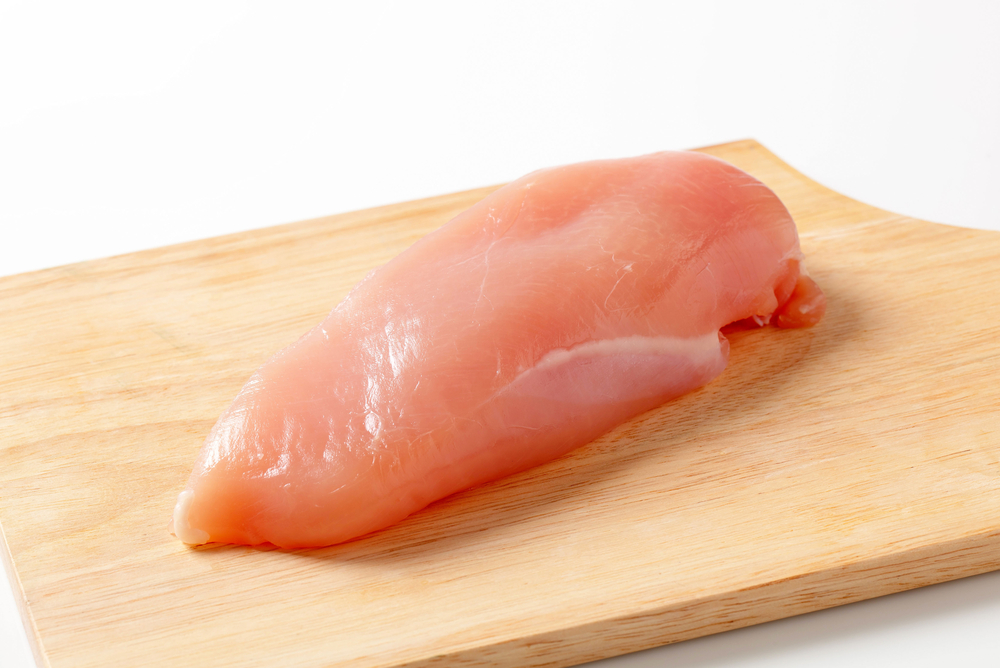
Why Washing Chicken Before Cooking is Unsafe (Video)

Get the world’s most fascinating discoveries delivered straight to your inbox.
You are now subscribed
Your newsletter sign-up was successful
Want to add more newsletters?

Delivered Daily
Daily Newsletter
Sign up for the latest discoveries, groundbreaking research and fascinating breakthroughs that impact you and the wider world direct to your inbox.

Once a week
Life's Little Mysteries
Feed your curiosity with an exclusive mystery every week, solved with science and delivered direct to your inbox before it's seen anywhere else.

Once a week
How It Works
Sign up to our free science & technology newsletter for your weekly fix of fascinating articles, quick quizzes, amazing images, and more

Delivered daily
Space.com Newsletter
Breaking space news, the latest updates on rocket launches, skywatching events and more!

Once a month
Watch This Space
Sign up to our monthly entertainment newsletter to keep up with all our coverage of the latest sci-fi and space movies, tv shows, games and books.

Once a week
Night Sky This Week
Discover this week's must-see night sky events, moon phases, and stunning astrophotos. Sign up for our skywatching newsletter and explore the universe with us!
Join the club
Get full access to premium articles, exclusive features and a growing list of member rewards.
Rachel Ewing is a news officer for science and health at Drexel University. She contributed this article to Live Science's Expert Voices: Op-Ed & Insights.
Like most people, you may believe that washing raw chicken prior to cooking is safe, or even prevents food-borne illness. In fact, the opposite is true.
"You should assume that if you have chicken, you have either Salmonella or Campylobacter bacteria on it, if not both," said food safety researcher Jennifer Quinlan, an associate professor at Drexel University. These two bacteria, she noted, are the leading causes of food-borne illness. "If you wash it, you're more likely to spray bacteria all over the kitchen and yourself." And the water you would use to rinse the chicken is not hot enough to kill bacteria, either.
Quinlan worked with doctoral student Shauna Henley to discover that washing raw poultry was a common unsafe practice for people in several minority groups, though a subsequent, larger survey by the same researchers showed the practice was common across the board, for all cultures.
People are attached to the idea of washing raw poultry, Quinlan noted, for a variety of reasons. According to their focus group study, "Some think they're cleaning off germs," she said. "Some just want to get slime off, or feel like it's dirty."
In reality, washing chicken increases the risk that harmful bacteria could spread to the sink and surrounding surfaces through a process called aerosolization. If people eat any food being prepared on those surfaces, they could become sick through the cross-contamination, And there's simply no need to wash the chicken because cooking it to a proper temperature will kill the bacteria.
A safer way to remove slime, if desired, is to wipe gently with a paper towel and then throw the towel away.
Get the world’s most fascinating discoveries delivered straight to your inbox.
Learning that washing is actually a problem is an essential first step. Quinlan estimates that public readiness to stop washing chicken is "about where cooking-thermometer usage was about 15 to 20 years go." At that time, she said, "nobody owned a thermometer or thought about using one to test doneness [of cooking meat]. Now people own a thermometer, and at least some use them."
Quinlan and Henley have developed the "Don't Wash Your Chicken" campaign, featuring and photo-novellas and mini-drama videos. They chose the format of half-comic, half-illustrated stories because they are similar to those that are popular in health education materials for communities the researchers were targeting.
New Mexico State University, the Drexel team's partners for educational media development, also had strengths in video production, so the researchers were able to produce the stories with professional actors. Each story features a person preparing chicken and attempting to wash it, until intercepted by a family member who informs them about the risk.
Each story features a different type of chicken (such as a whole chicken or boneless chicken breasts) to convey that no raw poultry is safe for washing, and includes a healthy recipe for the featured meal. The campaign is an outgrowth of the researchers' U.S. Department of Agriculture-funded research effort to address unique food-safety risks in U.S. minority populations. Learn more and view the stories at drexel.edu/dontwashyourchicken, and see a discussion of the campaign in this video .
Follow all of the Expert Voices issues and debates — and become part of the discussion — on Facebook, Twitter and Google+. The views expressed are those of the author and do not necessarily reflect the views of the publisher. This version of the article was originally published on Live Science.
 Live Science Plus
Live Science Plus











